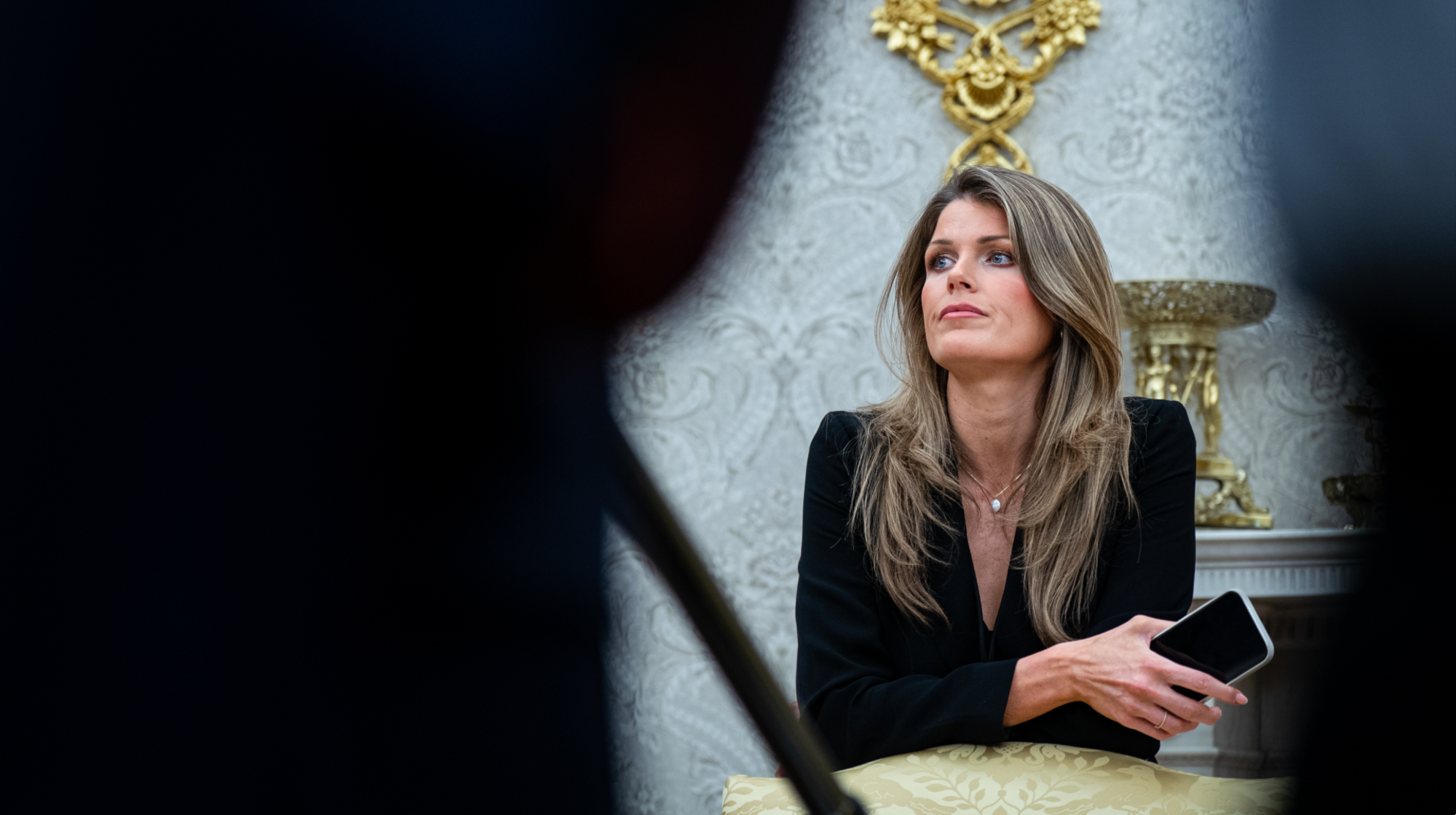Judge tosses Trump DOJ cases against Comey, James
Both cases could potentially be brought again


A free daily email with the biggest news stories of the day – and the best features from TheWeek.com
You are now subscribed
Your newsletter sign-up was successful
What happened
U.S. District Judge Cameron Currie on Monday threw out the Trump administration’s criminal cases against former FBI Director James Comey and New York Attorney General Letitia James. Currie ruled that Lindsey Halligan, the insurance lawyer and White House aide hand-picked by President Donald Trump to prosecute both cases, had been “unlawfully” installed as U.S. Attorney in the Eastern District of Virginia, rendering both indictments void. But the judge dismissed both cases “without prejudice,” giving the Justice Department a chance to attempt a do-over.
Who said what
Currie’s twin rulings are the most “significant setback yet” for Trump’s ongoing effort to “force the criminal justice system to punish his perceived foes,” said The New York Times. The judge’s disqualification of Halligan also “added to a string of successful challenges” of Trump’s efforts to appoint U.S. attorneys outside the “customary Senate confirmation process,” The Wall Street Journal said.
Attorney General Pam Bondi had “defended Halligan’s appointment” but also named her a “‘Special Attorney,’ presumably as a way to protect the indictments from the possibility of collapse,” The Associated Press said. Currie rejected that attempt at retroactive validation, saying it would allow the government to “send any private citizen off the street — attorney or not — into the grand jury room to secure an indictment so long as the attorney general gives her approval after the fact. That cannot be the law.”
The Week
Escape your echo chamber. Get the facts behind the news, plus analysis from multiple perspectives.

Sign up for The Week's Free Newsletters
From our morning news briefing to a weekly Good News Newsletter, get the best of The Week delivered directly to your inbox.
From our morning news briefing to a weekly Good News Newsletter, get the best of The Week delivered directly to your inbox.
Disqualifying Halligan was “arguably the least painful way for the Justice Department to lose the Comey and James cases,” Politico said, because it left “unresolved the most explosive question in each: whether the indictments were the product of Trump’s personal animus.” Comey said on social media that “Trump will probably come after me again,” but “my attitude is going to be the same: I’m innocent. I am not afraid. And I believe in an independent federal judiciary.”
What next?
Bondi said the Justice Department would pursue an “immediate appeal” of the cases. Lawfully appointed prosecutors could try to revive the cases, though they would “face complications” with the Comey charges, as the five-year statute of limitations ended in September, the Journal said.
A free daily email with the biggest news stories of the day – and the best features from TheWeek.com
Rafi Schwartz has worked as a politics writer at The Week since 2022, where he covers elections, Congress and the White House. He was previously a contributing writer with Mic focusing largely on politics, a senior writer with Splinter News, a staff writer for Fusion's news lab, and the managing editor of Heeb Magazine, a Jewish life and culture publication. Rafi's work has appeared in Rolling Stone, GOOD and The Forward, among others.
-
 Political cartoons for February 12
Political cartoons for February 12Cartoons Thursday's political cartoons include a Pam Bondi performance, Ghislaine Maxwell on tour, and ICE detention facilities
-
 Arcadia: Tom Stoppard’s ‘masterpiece’ makes a ‘triumphant’ return
Arcadia: Tom Stoppard’s ‘masterpiece’ makes a ‘triumphant’ returnThe Week Recommends Carrie Cracknell’s revival at the Old Vic ‘grips like a thriller’
-
 My Father’s Shadow: a ‘magically nimble’ film
My Father’s Shadow: a ‘magically nimble’ filmThe Week Recommends Akinola Davies Jr’s touching and ‘tender’ tale of two brothers in 1990s Nigeria
-
 US to send 200 troops to Nigeria to train army
US to send 200 troops to Nigeria to train armySpeed Read Trump has accused the West African government of failing to protect Christians from terrorist attacks
-
 Grand jury rejects charging 6 Democrats for ‘orders’ video
Grand jury rejects charging 6 Democrats for ‘orders’ videoSpeed Read The jury refused to indict Democratic lawmakers for a video in which they urged military members to resist illegal orders
-
 Lawmakers say Epstein files implicate 6 more men
Lawmakers say Epstein files implicate 6 more menSpeed Read The Trump department apparently blacked out the names of several people who should have been identified
-
 Trump links funding to name on Penn Station
Trump links funding to name on Penn StationSpeed Read Trump “can restart the funding with a snap of his fingers,” a Schumer insider said
-
 Trump reclassifies 50,000 federal jobs to ease firings
Trump reclassifies 50,000 federal jobs to ease firingsSpeed Read The rule strips longstanding job protections from federal workers
-
 Supreme Court upholds California gerrymander
Supreme Court upholds California gerrymanderSpeed Read The emergency docket order had no dissents from the court
-
 700 ICE agents exit Twin Cities amid legal chaos
700 ICE agents exit Twin Cities amid legal chaosSpeed Read More than 2,000 agents remain in the region
-
 Is the Gaza peace plan destined to fail?
Is the Gaza peace plan destined to fail?Today’s Big Question Since the ceasefire agreement in October, the situation in Gaza is still ‘precarious’, with the path to peace facing ‘many obstacles’
